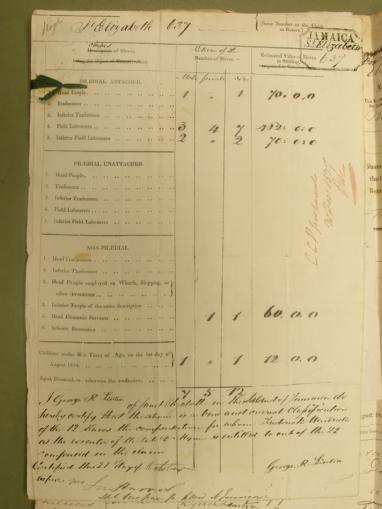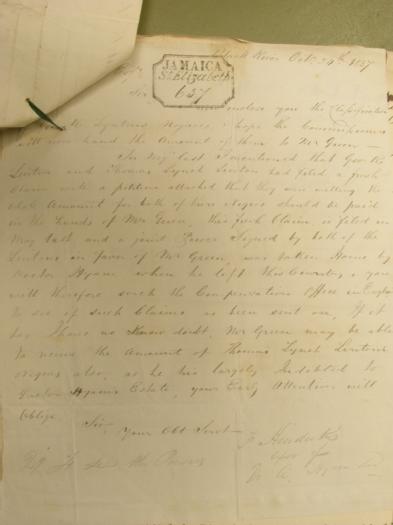Compensation Claims
The Slavery Compensation Commission administered the claims, following the Abolition of Slavery Act 1833. The valuation of enslaved people - adults, children and the infirmed, and the claims by their owners, followed a meticulous system of claimants, counter claimants, letters written from the Caribbean to Britain and in some cases devious characters appearing to claim the award.
The awards for Jamaica were organised by parish and each parish assigned specific valuators, who assessed the cost of each enslaved person submitted by the enslaver.
In some cases, the enslavers who had submitted their slave returns from 1817-1832, had the names and posterity of the enslaved people. However, the valuators never found it necessary to record the names of the enslaved, an unfortunate omission, as recorded names would have provided a wealth of data for genealogical researchers today.
Each claimant whether they were claiming for themselves, acting as guardian, an executor or attorney, had a claim number assigned, which was used for all correspondences, including counter claims and entered into the Parliamentary Returns for final administration. The courts of Chancery made some final decisions, where they received the monies, especially for children, whose awards were classified as Special Awards in Trust.
St. Elizabeth had 1045 claims for compensation, from 847 claimants, of which 387 or almost 46% were women. Statistically, there were 19,878 enslaved people on the claims, with the numbers of births and deaths fluctuating on a daily basis.


Two brothers, George Robert Linton and Thomas Lynch Linton, made a claim for 21 enslaved people, to the value of £664, in 1834 on the Cambridge Estate. However, Matthew Azuly Hyman counterclaimed for 11 and won his appeal. The brothers were only awarded £210 4s 10d on the 26th March 1838. Many such detailed data exist on families within the parish.
